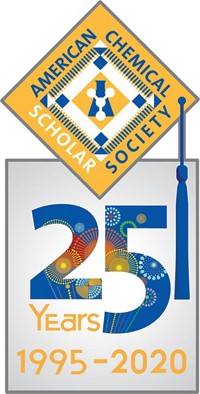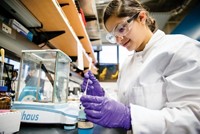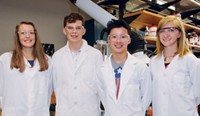Advertisement
Grab your lab coat. Let's get started
Welcome!
Welcome!
Create an account below to get 6 C&EN articles per month, receive newsletters and more - all free.
It seems this is your first time logging in online. Please enter the following information to continue.
As an ACS member you automatically get access to this site. All we need is few more details to create your reading experience.
Not you? Sign in with a different account.
Not you? Sign in with a different account.
ERROR 1
ERROR 1
ERROR 2
ERROR 2
ERROR 2
ERROR 2
ERROR 2
Password and Confirm password must match.
If you have an ACS member number, please enter it here so we can link this account to your membership. (optional)
ERROR 2
ACS values your privacy. By submitting your information, you are gaining access to C&EN and subscribing to our weekly newsletter. We use the information you provide to make your reading experience better, and we will never sell your data to third party members.
People
Happy 50th birthday, Project SEED
by Bibiana Campos Seijo
January 29, 2018
| A version of this story appeared in
Volume 96, Issue 5
Do you know—or remember—what happened on April 2, 1968? I wasn’t even born, but from reading about U.S. history with my children, I know that it was around that time that Martin Luther King Jr. was assassinated in Memphis. Actually, Google confirms I wasn’t far off, as King’s killing happened only two days later, on April 4.
That month—that year, in fact—was a time of great civil and political unrest in the U.S. Some consider 1968 to be one of the most turbulent years of 20th-century American history. Hundreds of riots in cities across the country resulted in scores of deaths and thousands of arrests. The reasons for those riots were many, often interrelated, including racial tension, segregation, and police brutality; lack of employment and opportunity for all; competition for public housing; and curbing of social services. While all this was happening domestically, the U.S. was also at war in Vietnam, a conflict that cost the American public $77.4 billion that year alone—the most expensive year of the war.
So it was that in 1968, two days before King’s assassination, that the American Chemical Society decided to take action. On April 4, the ACS Council passed a resolution “to take the appropriate steps to ease the problems of underprivileged segments of the nation’s population, particularly in relation to lack of education and unemployment.” ACS wisely recognized the toll that the political and social unrest could take in terms of the future of the chemical sciences: depriving underprivileged people from access to education and employment, and the chemical industry from the potential contributions by this growing pool of individuals. And so the seed for Project SEED was sown.
Now in its 50th year, Project SEED has changed the lives of more than 10,000 students who have participated in the program so far. The concept is simple: The program funds bright high school students from economically disadvantaged families so they can spend 10 weeks during the summer as research assistants in an academic, industry, or governmental research laboratory. SEED students work one-on-one with a research scientist, earn a fellowship, and participate meaningfully in research. The 1968 trial program started with a $5,000 donation and seven institutions hosting 10 SEED students: American University; Rutgers University; Ohio State University; the University of California, Berkeley; the University of Cincinnati; the University of Illinois; and Hope College. The rest is history.
At C&EN we are celebrating Project SEED’s 50th anniversary throughout 2018. Each month we’ll publish the personal story of a past SEED student, starting with Ticora Jones on page 33 of this issue.
Also, in this issue we announce the winners of SEED’s 2017–18 college scholarships—an offshoot, if you like, of the program in which deserving former SEED summer students are awarded a one-year scholarship of up to $5,000 to help with tuition and other fees during their first year of college. You can read more and meet the winners on pages 34–35.
It is important to recognize the critical roles played by the mentors who supervise the students’ work and the sponsors—private corporations as well as individual donors—who offer financial support. Together they are providing life-changing opportunities for many young people across the country.
Views expressed on this page are those of the author and not necessarily those of ACS.






Join the conversation
Contact the reporter
Submit a Letter to the Editor for publication
Engage with us on Twitter